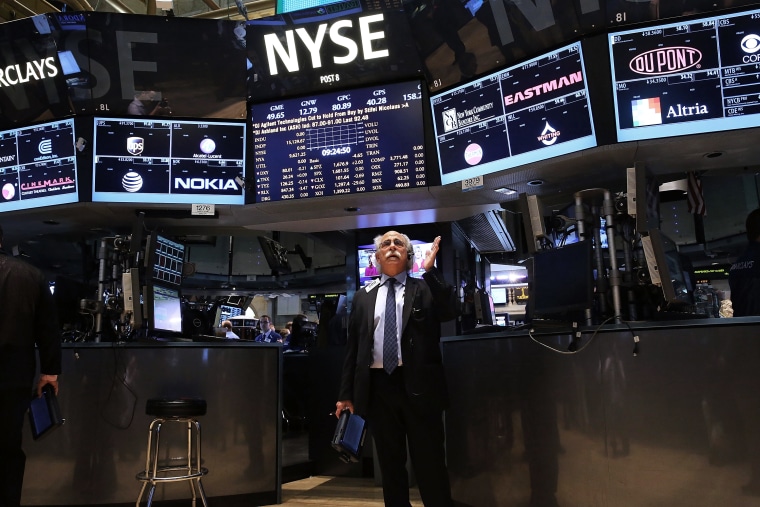The ongoing government shutdown is a blow to the economy, with thousands of federal workers furloughed and programs shut down. But if Republicans refuse to raise the debt ceiling, the consequences would be much, much worse.
In a report released Thursday morning by the Treasury Department, the administration warned that failing to raise the ceiling before the U.S. hits its legal borrowing limit in mid-October could lead to a recession worse than the one that followed the 2008 financial crisis.
“[C]redit markets could freeze, the value of the dollar could plummet, and U.S. interest rates could skyrocket, [and] the negative spillovers could reverberate around the world,” the report cautioned.
In a worst-case scenario, failing to raise the limit could lead the U.S. to default on debts to creditors it has already racked up. If that happened, the report said, “it could have a catastrophic effect on not just financial markets but also on job creation, consumer spending and economic growth.”
But even the threat of a default would be plenty bad, the report said. It could make it harder for families and businesses to borrow money, and cause sharp declines in household wealth.
In 2011, Congress flirted with not raising the debt ceiling before an 11th-hour deal that locked in future spending cuts. That brinksmanship alone caused “long-lasting scars on financial markets,” the Treasury said. Soon after the standoff was resolved, Standard & Poor’s downgraded the U.S.’s credit rating for the first time in history, and government borrowing costs rose.
It’s looking more and more likely that Congress won’t raise the limit before we hit it. As in 2011, Republicans have been vowing not to raise the limit unless President Obama agrees to a slew of conservative economic policies, including spending cuts, gutting regulations, cuts to Medicare, offshore drilling, Paul Ryan’s tax plan, and delaying Obamacare for a year.
The White House, wary of establishing a troubling precedent, has said Congress must raise the limit without conditions—a stance President Obama reiterated to Republicans in a meeting Wednesday.
“If we get in the habit where a few folks, an extremist wing of one party, whether it’s Democrat or Republican, are allowed to extort concessions based on a threat of undermining the full faith and credit of the United States, then any president who comes after me—not just me—will find themselves unable to govern effectively,” Obama said in an interview with CNBC Wednesday.
Obama has history on his side. Though debt limit raises have sometimes been attached to larger budget deals, raising the debt ceiling was essentially a routine piece of congressional business for over half a century until the GOP took control of Congress in 2011.
Lately, there’s been talk that a deal on the debt ceiling could get wrapped into a deal on the ongoing government shutdown, which began Tuesday. But the shutdown could actually make the debt ceiling fight harder to resolve. That’s because Republican leaders have been using the looming debt ceiling showdown as a way to convince their hardline members to back down on the shutdown, promising that the party will make its stand on the debt ceiling, where some think it has better leverage. Any concessions on the shutdown fight could leave Tea Partiers determined not to compromise over the debt ceiling.
Obama also met with Wall Street executives to ask for their help in persuading the GOP to back down. But Wall Street’s level of influence on Tea Party Republicans is open to question.
Some Democrats have argued that Obama is authorized under the 14th Amendment to raise the debt ceiling unilaterally if Congress won’t do it. But this week, the White House appeared to rule out that option, saying do so might roil the markets.
